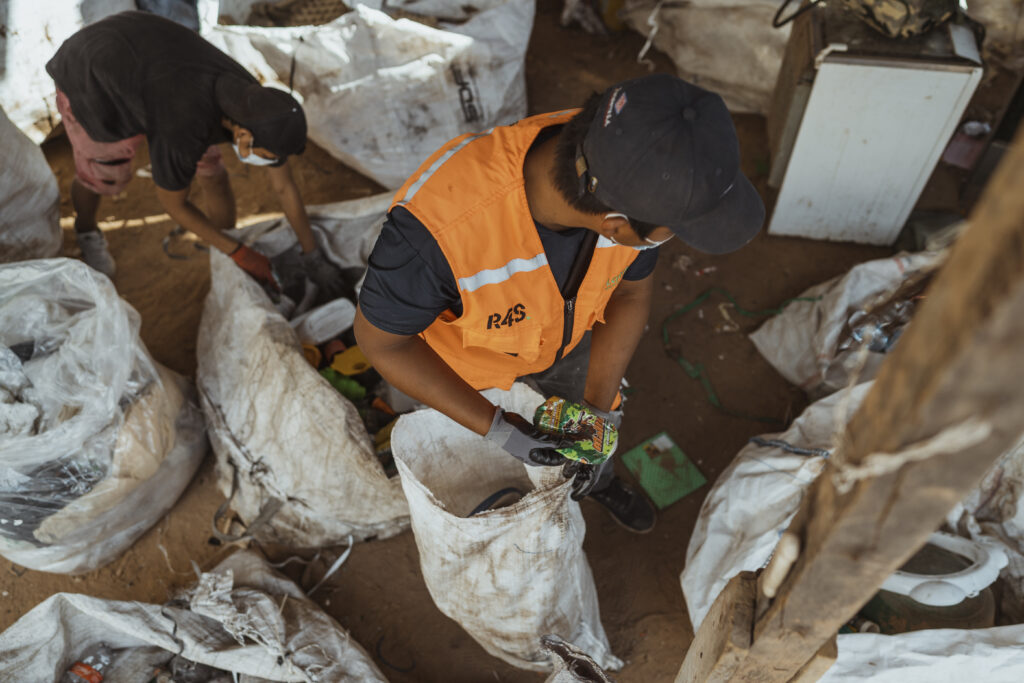
Our solutions
Formalisation of waste pickers work
We work with individuals and associations of waste pickers to achieve their progress in the value chain, increase their income and improve their working and socio-economic conditions, thereby promoting social recognition of their activity and environmental contribution.
Waste pickers are those who earn their living by collecting and selling waste. Many do so in extremely vulnerable situations, as they are estimated to capture only a small fraction of the economic value they generate, estimated at 5%*.
Our work focuses on:
Formalising recovery activities
We formalise recovery activities by promoting association and supporting business registration, as well as introducing support tools -such as uniforms and personal protective equipment.
Training plans
We create training plans focused on the acquisition of administrative and technical skills, as well as the creation of specific training programmes for both waste pickers and municipal staff. These programmes aim to improve the capacity and autonomy of the main actors in the municipal selective collection process.
Improving access systems
We improve access systems for recyclable materials by helping to set up selective collection routes, creating public awareness campaigns and establishing agreements with municipalities and large production centres that guarantee recyclers access to materials and pay for the provision of a municipal service.
Moving up the value chain
We achieve the progress of waste pickers in the value chain by developing measures to ensure that waste pickers have the right tools and machinery to improve their work and move up the value chain.

If your organisation is interested in supporting a formalisation process for waste pickers, please contact our agency.
*According to the Multilateral Investment Fund of the Inter-American Development Bank Group, an estimated 4 million people in Latin America and the Caribbean earn a living from informal recycling, providing between 50 and 90% of recycled materials for industrial use. However, it is estimated that these people receive only 5% of the value generated.



